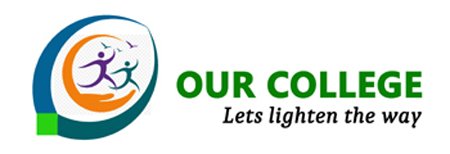As the world continues to evolve and adapt to new ways of learning and assessment, the Central Board of Secondary Education (CBSE) in India has proposed a major change in its examination system – open-book exams. This move has sparked debates and discussions among students, parents, and educators alike. Some see it as a progressive step towards a more practical and relevant evaluation method, while others view it as a dilution of the traditional examination system. In this article, we will delve into the concept of open-book exams, its pros and cons, and what it means for the future of education in India.
What is an Open-Book Examination?
An open-book examination is a type of assessment where students are allowed to refer to their textbooks, notes, and other study materials during the exam. Unlike traditional exams where students have to rely solely on their memory and understanding of the subject, open-book exams provide them with access to reference material. This approach aims to test not just the students’ knowledge but also their ability to apply that knowledge to solve real-world problems.
The Evolution of Open-Book Exams
The idea of open-book exams is not entirely new. It has been around since the 19th century when Harvard University introduced it as part of their law school curriculum. However, it was only in the 1960s that open-book exams gained popularity in other fields of study. In recent years, many universities and educational institutions around the world have adopted this form of assessment, including prestigious institutions like Oxford and Cambridge.
In India, the concept of open-book exams was first introduced by the National Institute of Open Schooling (NIOS) in 2007. It was initially implemented for students with disabilities, but later extended to all students. Now, with the CBSE proposing open-book exams for its students, it has become a topic of national interest.
Pros of Open-Book Exams
- Encourages Critical Thinking and Application of Knowledge
One of the main advantages of open-book exams is that it promotes critical thinking and application of knowledge. In traditional exams, students are expected to memorize information and reproduce it on paper. This approach does not necessarily reflect their understanding of the subject or their ability to apply that knowledge in real-life situations. With open-book exams, students have to analyze and interpret the information they have at hand to answer the questions. This not only tests their understanding but also encourages them to think critically and creatively.
- Reduces Exam Stress and Anxiety
Exams can be a source of immense stress and anxiety for students, especially in a country like India where academic performance is given high importance. The pressure to perform well can take a toll on students’ mental health and affect their overall well-being. Open-book exams, on the other hand, can help alleviate this stress as students have access to reference material. They do not have to rely solely on their memory and can refer to their notes to clarify any doubts or confusion. This can create a more relaxed and conducive environment for students to showcase their knowledge and skills.
- Promotes Lifelong Learning
The traditional examination system often focuses on rote learning, where students memorize information to score well in exams. This approach does not encourage students to retain the knowledge beyond the exam. However, with open-book exams, students are encouraged to understand and apply the concepts rather than just memorizing them. This promotes lifelong learning and prepares students for the real world, where they will constantly need to update their knowledge and skills.
- Better Assessment of Real-World Skills
Open-book exams provide a more realistic assessment of a student’s skills and abilities. In today’s world, where information is readily available at our fingertips, it is essential to test students’ ability to use that information effectively. Open-book exams do just that by evaluating a student’s problem-solving, analytical, and research skills. This type of assessment is more relevant and practical in today’s fast-paced and dynamic world.
- Equal Opportunity for All Students
In traditional exams, students who have better memory or are good at cramming tend to perform well. However, open-book exams level the playing field as all students have access to the same reference material. It eliminates the advantage that some students may have over others based on their memory or study techniques. This creates a fairer evaluation system and provides equal opportunities for all students to showcase their knowledge and skills.
Cons of Open-Book Exams
- May Lead to Over-Reliance on Reference Material
One of the main concerns with open-book exams is that it may lead to over-reliance on reference material. Students may become complacent and not put in enough effort to understand the concepts as they know they can refer to their notes during the exam. This defeats the purpose of testing their understanding and application of knowledge. It is essential for educators to strike a balance and ensure that students do not solely rely on their notes but also understand the concepts.
- Requires Proper Preparation and Time Management
Open-book exams require proper preparation and time management skills from students. They need to be familiar with their reference material and know where to find the information they need quickly. This can be challenging for students who are not organized or have poor time management skills. It is crucial for educators to train students on how to prepare for open-book exams and manage their time effectively during the exam.
- May Not Be Suitable for All Subjects
While open-book exams may work well for subjects that require critical thinking and application of knowledge, they may not be suitable for all subjects. For example, subjects like mathematics or languages may not be ideal for open-book exams as they require a certain level of memorization and practice. It is essential to carefully consider which subjects are suitable for open-book exams and which ones may need a more traditional approach.
Conclusion
The CBSE’s proposal to introduce open-book exams has sparked a much-needed conversation about the current examination system in India. While there are valid concerns and challenges associated with this change, it is undoubtedly a step towards a more practical and relevant assessment method. Open-book exams have the potential to promote critical thinking, reduce exam stress, and prepare students for the real world. However, it is crucial to address the cons and implement this system effectively to reap its benefits fully. As we move towards a more technology-driven and information-rich society, open-book exams may just be the way forward in the Indian education system.















